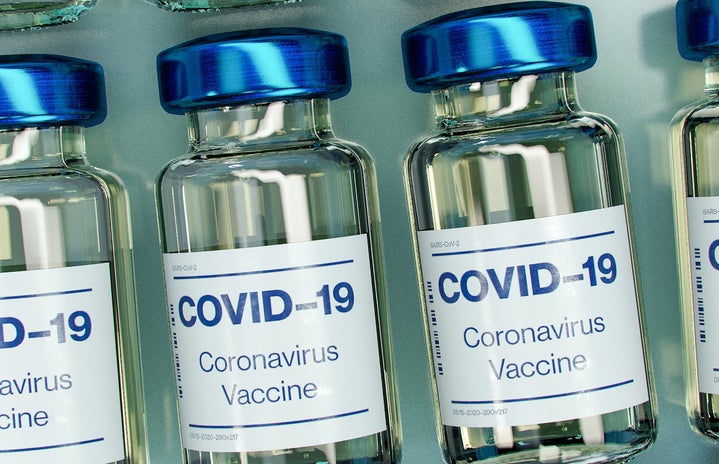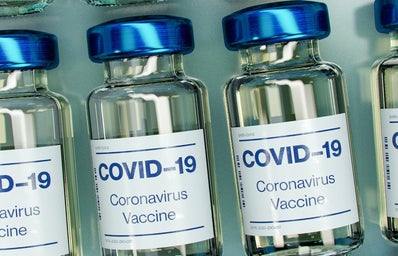These past two years have been life altering. Now, whether your life has changed for the better or worse, we can all agree that COVID-19 has been a major player in this time of transition. For those of you reading this article years in the future, hopefully in a world where covid is a distant memory, COVID-19 is a disease caused by SARS-CoV-2 that can trigger a respiratory tract infection. It can have affects on your upper respiratory tract, sinuses, nose, and throat or lower respiratory tract, that includes your windpipe and lungs. It spreads the same way other coronaviruses do, mainly through personal contact, hence the “6-feet apart rule”. This pandemic has truly blindsided the United States as a nation and also the entire world. There have been better execution of safety protocols than others in the different countries. We have been through lockdowns and mandates to decrease the further spread of covid, but ultimately a vaccine has been the only definite solution to the pandemic. Even if it’s not a cure, having a vaccine is a temporary fix. Although we have been provided with a solution to a problem that seems ceaseless, an alarming amount of people are reluctant to take the FDA approved vaccines.
Vaccination myths
Myth: The government is injecting microchips into you through the vaccine
FACT: COVID-19 vaccines do not contain microchips. The vaccines are developed to fight against diseases and are not distributed by the government to track your movement. Vaccines work by training your immune system to produce antibodies, to simulate what it would be like if you were actually exposed to the disease. After getting vaccinated, you develop immunity to that disease, without having to get the disease in the first place.
MYTH: COVID-19 CAN ALTER YOUR DNA
FACT: COVID-19 vaccines do not change or interact with your DNA in any way. Both mRNA and viral vector COVID-19 vaccines deliver instructions, which is genetic material, to our cells to start building up a protection against the virus that causes COVID-19. The material, however, never reaches the nucleus of the cell, which is where our DNA is held.
MYTH: The vaccines aren’t safe because they were developed too quickly
FACT: The COVID-19 vaccines themselves were developed quickly, but the clinical trials to examine safety and efficacy were not rushed at all. Some of the scientists have spent their whole career working on these protocols. Safety was not compromised in any way, but what did happen quickly was finding the vaccine to test. In the past, it would’ve took scientists way longer to create vaccinations, but due to scientific advances we have made throughout the years, we can find and treat viruses better.
MYTH: VACCINES CAUSE INFERTILITY
FACT: There is no clinical data or any proven theories as to why or how the vaccines could cause issues of infertility. This might have been a concern to have when the vaccines first came out, but now, months later we know that vaccinated people can still have children. Women who participated in the COVID-19 clinical trials were able to conceive after vaccination. In fact, pregnant women have a higher chance of having a miscarriage or going into labor prematurely if they do have COVID-19, which is even more of a reason to get vaccinated.
MYTH: The virus is being injected into you through the vaccine
FACT: None of the FDA approved Covid-19 vaccines in the U.S. contain the live virus that causes covid. This means that a vaccine cannot make you sick with the virus. COVID-19 vaccines teach our immune systems how to recognize and fight the virus that causes COVID-19. Sometimes this process can cause symptoms, such as fever. These symptoms are normal and are signs that the body is building protection against the virus that causes COVID-19.
MYTH: Once you get vaccinated you can’t get COVID-19
FACT: When you get the vaccine, your body develops immunity to the disease. This does not mean that you cannot contract the disease if you are vaccinated. Vaccinated people can still become infected and have the potential to spread the virus to others, although at much lower rates than unvaccinated people. The risks of SARS-CoV-2 infection in fully vaccinated people are higher where community transmission of the virus is widespread.
There are a lot of misconceptions surrounding COVID-19 and vaccinations, but it is our public duty to spread the proper information and protect ourselves and each other in the best way possible. Medical professionals have approved the vaccine and the vaccines have been strongly advised for everyone ages 12 and up.


